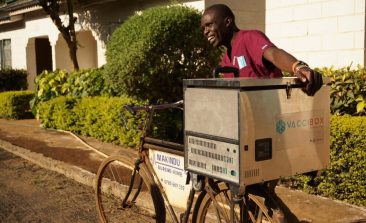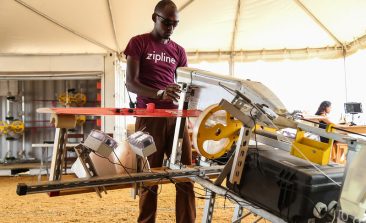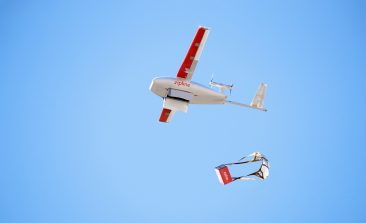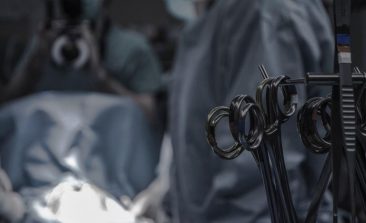Content to: healthcare
Solar-Powered Fridges Revolutionise Remote Areas of Kenya’s Vaccine Delivery
One entrepreneur’s solar-powered portable fridge is helping some of Africa's remotest communities get access to life-saving vaccines.
Autonomous Drone Deliveries Provide Life-Saving Services During Coronavirus Pandemic
High-tech drones are providing fast, remote medical delivery services in Africa, Europe and the US - transporting medicines, equipment, blood samples, testing devices and more. And in the midst of the coronavirus pandemic, they're doubling down on their efforts.
A Helping Hand From Outer Space: Doctors Without Borders Utilise Satellite Data for Humanitarian Missions
In Austria, the humanitarian organisation Doctors Without Borders has its own remote sensing and geoinformatics unit, which is helping them optimise and streamline their work in crisis regions. We spoke with Lorenz Wendt, who provides the organisation with satellite imagery and tailormade maps.
Zipline Continues Medical Drone Deliveries, Expanding to Ghana
Some three years after US Robotics company Zipline started a pilot project to deliver medicines via drone in Rwanda, the successful program is now expanding to Ghana.
The German Student Developing a “Lego” Hospital for Syria
A master's thesis with real world impact: German student Sarah Friede has developed a modular hospital that could provide crucial medical care in post-war regions.
Bloop: The Ten Dollar Reusable Device That Saves Lives
For people in low-income countries, undergoing surgery can bear one key additional risk: a lack of access to safe blood supplies means that too many still end up perishing due to loss of blood. But how to prevent major blood loss during surgery, and ensure timely availability of clean and safe blood to those who need it, even in places lacking the appropriate medical infrastructure?
Drones and Satellites for Good – Drones as Flying Ambulances
In areas with poor road infrastructure, getting vital equipment and supplies to residents can be difficult. One US-based organisation is looking at how drones could be used as medical couriers.
Lift Labs’ Liftware Spoons Help Parkinson’s Patients Eat Steady Again
The spoon-steadying technology, developed by Lift Labs, was recently acquired by Google.
Sustainable Development 2.0: Healthcare Beyond 2015
Health is the underlying theme in the context of global development, with 6 out of the 8 Millennium Development Goals committed to it one way or another. There is no one solution for healthcare, it has to be tailored to the region in question and that is what proving extremely arduous for very isolated and remote areas of the world.








